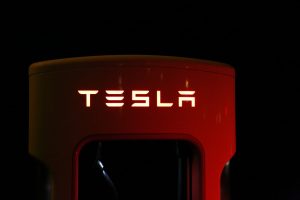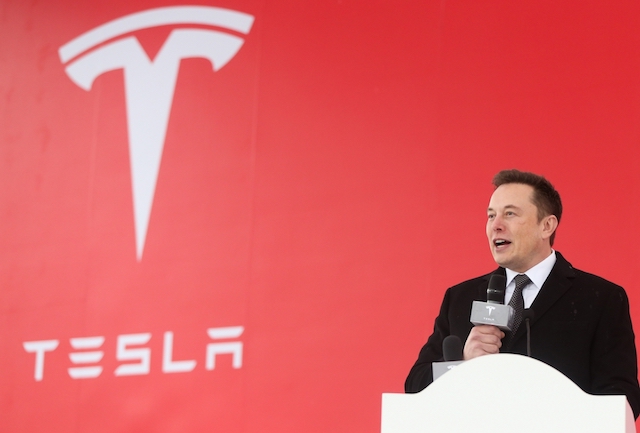In the realm of technological innovation, few names resonate as powerfully as Tesla. From its groundbreaking electric vehicles (EVs) to its renewable energy solutions and advancements in autonomous driving, Tesla has not only revolutionized industries but has also sparked a transformative ripple effect across the global landscape. This article delves into the phenomenon known as
In the realm of technological innovation, few names resonate as powerfully as Tesla. From its groundbreaking electric vehicles (EVs) to its renewable energy solutions and advancements in autonomous driving, Tesla has not only revolutionized industries but has also sparked a transformative ripple effect across the global landscape. This article delves into the phenomenon known as the “Tesla Effect” and explores how it is reshaping our world.
The Rise of Tesla

This image is taken from google.com
Tesla, founded by visionary entrepreneur Elon Musk in 2003, emerged at a time when the automotive industry was ripe for disruption. Musk’s bold vision to accelerate the world’s transition to sustainable energy laid the foundation for what would become one of the most influential companies of the 21st century. Tesla’s debut with the Roadster, the world’s first high-performance electric sports car, challenged perceptions of electric vehicles as sluggish and impractical.
Innovation in Electric Vehicles
Central to the Tesla Effect is the company’s relentless pursuit of innovation in electric vehicle technology. Tesla’s Model S, Model X, Model 3, and Model Y have set new benchmarks for performance, range, and safety in the EV market. The company’s investment in battery technology, evidenced by the Gigafactories dedicated to battery production, has driven down costs and accelerated the adoption of electric vehicles worldwide.
Disrupting the Automotive Industry
The Tesla Effect extends beyond the realm of electric vehicles. The company’s direct-to-consumer sales model, bypassing traditional dealerships, has challenged long-established distribution channels in the automotive industry. Moreover, Tesla’s focus on over-the-air software updates has blurred the lines between automotive and tech companies, setting a new standard for vehicle connectivity and functionality.
Advancements in Renewable Energy
Beyond transportation, Tesla has made significant strides in renewable energy solutions. The acquisition of SolarCity in 2016 bolstered Tesla’s presence in the solar energy market, offering integrated solar and battery storage solutions for residential and commercial customers. Initiatives like the Powerwall and Powerpack demonstrate Tesla’s commitment to decentralizing energy production and reducing reliance on fossil fuels.
Autonomous Driving Technology
Tesla’s foray into autonomous driving technology represents another dimension of the Tesla Effect. The company’s Autopilot system, coupled with the Full Self-Driving (FSD) package, has pushed the boundaries of semi-autonomous driving capabilities. While debates surrounding safety and regulatory oversight persist, Tesla’s advancements in artificial intelligence and neural networks continue to shape the trajectory of autonomous vehicle development.
Impact on Industry Dynamics
The Tesla Effect has reverberated across industries, prompting traditional automakers to accelerate their electrification efforts. Established players like Volkswagen, General Motors, and Ford have unveiled ambitious plans to invest in electric vehicles and transition away from internal combustion engines. The rise of electric vehicle startups and the emergence of new players in the renewable energy sector underscore the transformative influence of Tesla’s innovation.
Environmental Implications
At its core, the Tesla Effect represents a paradigm shift towards sustainability and environmental stewardship. By popularizing electric vehicles and renewable energy technologies, Tesla has played a pivotal role in reducing greenhouse gas emissions and combating climate change. The company’s success has inspired a wave of eco-conscious consumers and heightened awareness of the environmental impact of transportation and energy production.
Addressing Market Challenges
Despite its trailblazing innovations, Tesla is not immune to market challenges. The automotive industry is fiercely competitive, with established players and newcomers vying for market share. Moreover, regulatory hurdles and geopolitical uncertainties can impact Tesla’s global operations. For instance, fluctuations in tariffs and trade policies may affect supply chain dynamics and production costs. Additionally, the transition to electric vehicles requires substantial investment in infrastructure, including charging networks and battery manufacturing facilities. While Tesla has made significant strides in this regard, scaling up production to meet growing demand remains a persistent challenge. Furthermore, as electric vehicles become more mainstream, concerns regarding raw material sourcing, particularly for lithium and cobalt, may emerge, necessitating sustainable practices and responsible supply chain management.
Global Implications and Future Prospects
The Tesla Effect extends far beyond the confines of the automotive industry, reverberating across global markets and economies. Tesla’s success has propelled the rise of clean energy technologies and catalyzed investment in sustainable infrastructure. As nations strive to meet ambitious climate targets outlined in agreements like the Paris Agreement, the demand for electric vehicles and renewable energy solutions is poised to escalate. Tesla’s leadership in innovation positions it as a key player in shaping the future of mobility and energy. Moreover, the Tesla Effect has inspired a new wave of entrepreneurship and technological ingenuity, fostering an ecosystem of startups and ventures dedicated to advancing sustainable solutions. Looking ahead, the continued evolution of Tesla and its ecosystem of collaborators and competitors will undoubtedly influence the trajectory of innovation and redefine the parameters of a sustainable future.
Challenges and Criticisms
Despite its achievements, Tesla faces a myriad of challenges and criticisms. Concerns regarding manufacturing quality, supply chain issues, and workplace conditions have plagued the company. Moreover, skepticism surrounding Tesla’s valuation and profitability has led to volatility in the stock market. Regulatory scrutiny, particularly regarding autonomous driving safety standards, poses additional hurdles to Tesla’s long-term growth and sustainability.
Analysis Table
| Aspect | Description |
|---|---|
| Electric Vehicles | Tesla’s EVs set benchmarks in performance and range, driving adoption globally. |
| Renewable Energy Solutions | SolarCity acquisition and Powerwall demonstrate Tesla’s commitment to sustainable energy solutions. |
| Autonomous Driving | Autopilot and FSD packages push boundaries in semi-autonomous driving, shaping the future of transportation. |
| Industry Impact | Traditional automakers accelerate electrification efforts in response to Tesla’s influence. |
| Environmental Stewardship | Tesla’s success drives awareness of sustainability, leading to reduced emissions and eco-conscious consumer behavior. |
Comparative Table
| Company | Key Innovations | Impact on Industry |
|---|---|---|
| Tesla | Electric vehicles, renewable energy solutions, autonomous driving technology | Disrupted automotive industry, accelerated adoption of electric vehicles, shifted focus towards sustainability |
| Volkswagen | Electrification of vehicle lineup, investment in battery technology | Transitioning away from internal combustion engines, competing with Tesla in EV market |
| General Motors | Launch of electric vehicle models like the Chevrolet Bolt, investment in Ultium battery platform | Commitment to electric future, challenging Tesla’s dominance in EV market |
| Ford | Introduction of electric Mustang Mach-E, investment in electric vehicle production facilities | Electrification strategy to remain competitive, targeting diverse consumer segments in EV market |
| Rivian | Development of electric pickup trucks and SUVs, focus on adventure-oriented EVs | Disrupting traditional automotive market with innovative electric vehicle designs and capabilities |
| Lucid Motors | Production of luxury electric sedan Lucid Air, focus on performance and efficiency | Competing with Tesla in luxury EV segment, offering alternative to Model S |
| NIO | Production of electric vehicles, development of battery swap technology | Emerging player in Chinese EV market, exploring innovative solutions for EV charging and battery technology |
| BYD | Diversified electric vehicle lineup including buses, trucks, and passenger cars, investment in battery manufacturing capabilities | Leading EV manufacturer in China, contributing to global electrification efforts with diverse product offerings |
Conclusion
The Tesla Effect represents more than just the success of a single company; it embodies the transformative power of innovation to reshape industries and accelerate societal progress. Through its groundbreaking advancements in electric vehicles, renewable energy, and autonomous driving technology, Tesla has catalyzed a global shift towards sustainability and disrupted traditional business models. As the world continues to grapple with pressing environmental challenges, the lessons of the Tesla Effect serve as a beacon of hope for a future powered by innovation and ingenuity.
















